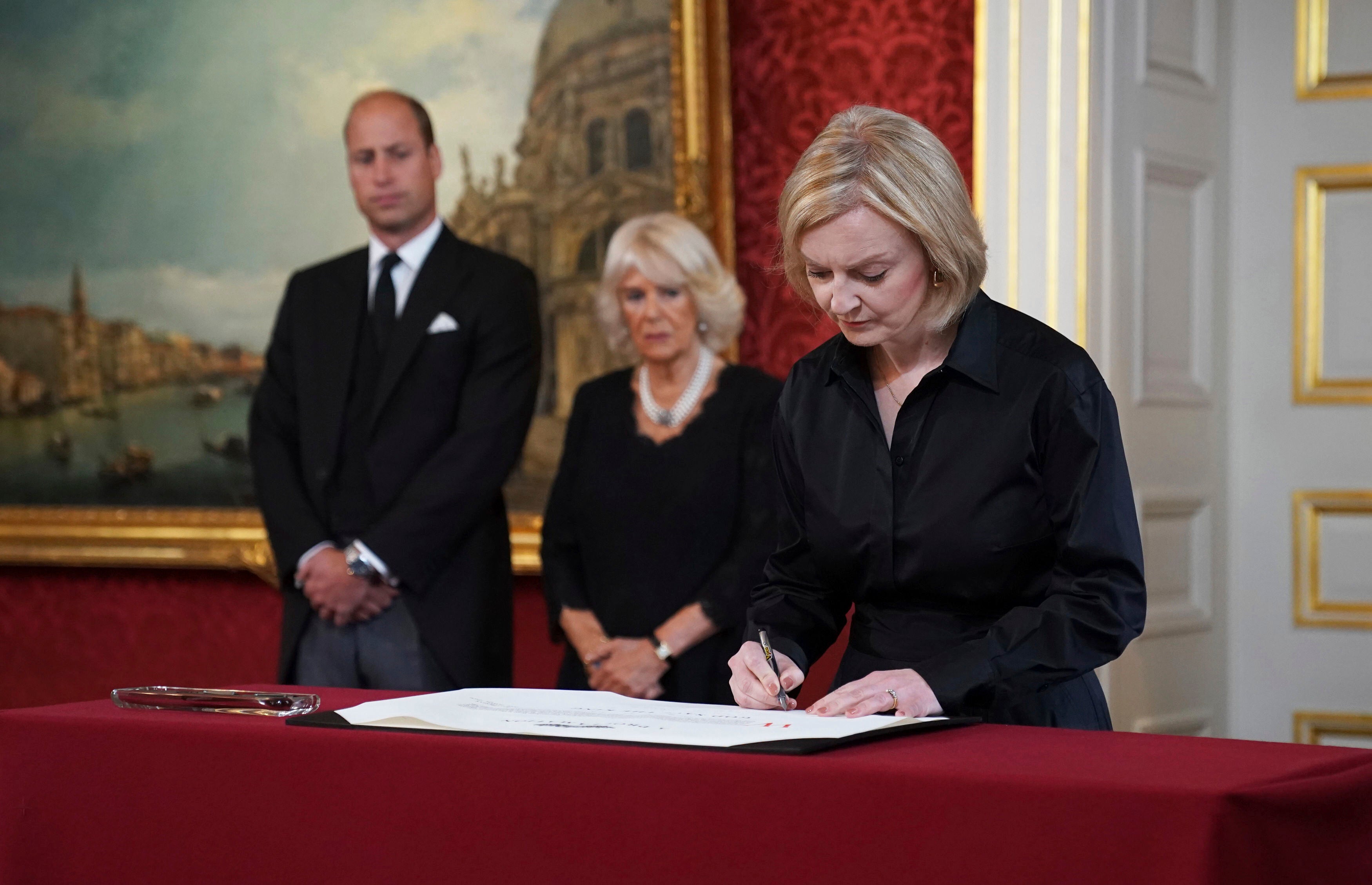The accession council is a reminder of where power really lies
As the privy council grew, it was supplanted as the main decision-making body of government by a sub-committee of the council called the cabinet, writes John Rentoul


The accession council that proclaimed Charles king is a good example of the trend in constitutional history for powerful bodies to expand and, as they expand, to lose their power, and to be supplanted by smaller bodies which then start the cycle again.
The privy council was originally the monarch’s closest advisers, those trusted to give confidential (private) advice. Its members, acting with the sovereign’s authority, often wielded great power. As its numbers grew, though, it was supplanted as the main decision-making body of government by a sub-committee of the council called the cabinet.
As membership of the privy council is conferred for life, it now has 500 members and has become too large for all its members to attend events such as the proclamation of a new monarch. Although more important privy counsellors were invited automatically, the rest had to put their names into a ballot to attend the ceremony.
Meanwhile, the cabinet is following the same path, as its meetings are increasingly for show rather than for actual deliberation. Boris Johnson as prime minister hastened that progress by more frequently inviting the TV cameras to film the start of cabinet, when he would address the assembled ministers as if they were at a public meeting.
It has been a long time, of course, since the cabinet has been a day-to-day decision-making body. The important decisions have long been taken by smaller ministerial sub-committees (sub-committees of a sub-committee of the privy council). When disagreements cannot be resolved, they usually go to the prime minister for arbitration rather than to the whole cabinet.
Dominic Cummings, Johnson’s former chief adviser, argued that real power lies not even with ministerial committees, but with relatively junior civil servants in 10 Downing Street, the prime minister’s private secretaries (that “private” word again). There may be some truth to that in the sense of influence over the daily flow of information and of small decisions, but in recent decades the most important power has tended to lie in informal groups of senior ministers including the prime minister.
To keep up to speed with all the latest opinions and comment, sign up to our free weekly Voices Dispatches newsletter by clicking here
Tony Blair’s government was dominated by the duumvirate of Blair and Gordon Brown, his chancellor. In the coalition there was a more formal group of four ministers called the quad, consisting of David Cameron, George Osborne, Nick Clegg and Danny Alexander. That was a structure that was revived during the pandemic, with a quad made up of Boris Johnson, Rishi Sunak, Matt Hancock and Michael Gove.
For the last year of Johnson’s government, that grouping had broken up and was not replaced, possibly contributing to the prime minister’s weakness.
Now we have a new prime minister, who has expanded the cabinet again, with 23 full members and eight ministers entitled to attend, making a total of 31 – requiring the extension to the coffin-shaped table. But we will soon find out who will be in her inner, “private” cabinet wielding the real power.
Yours,
John Rentoul
Chief political commentator
Join our commenting forum
Join thought-provoking conversations, follow other Independent readers and see their replies
Comments
Bookmark popover
Removed from bookmarks